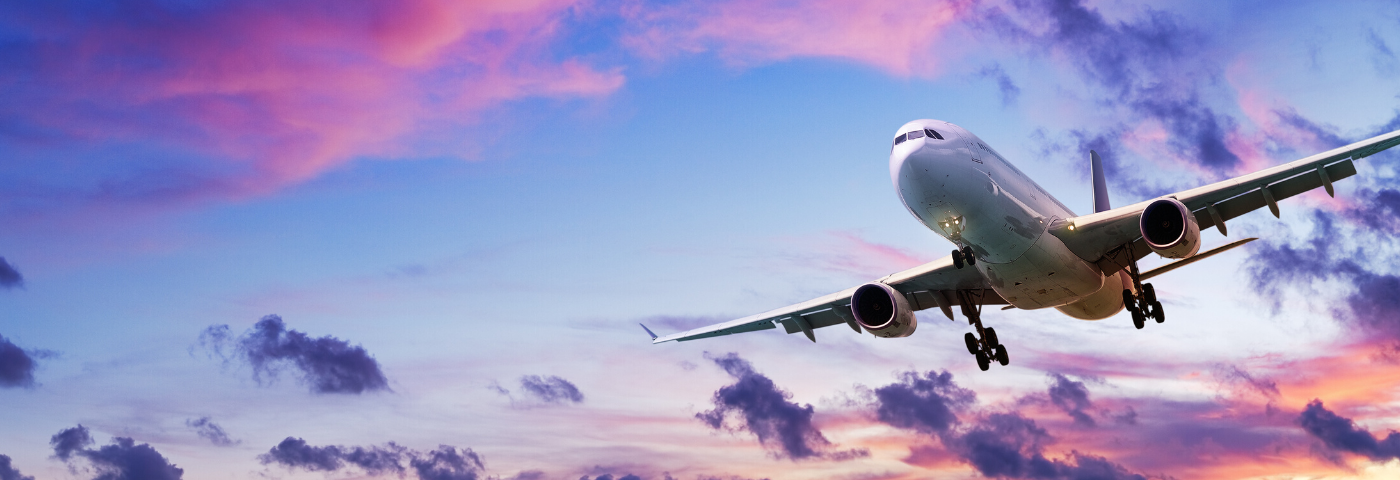It’s hard to believe that only a few months ago everything looked normal in the airline world. Well, as normal as it ever is, there is always some challenge to deal with. But no one could have imagined the immense tsunami which was about to hit the airline industry with the emergence of the COVID-19 pandemic.
Want to hear the latest aviation industry updates? Make sure you REGISTER for WTM Virtual so you don’t miss out!
From a significant, but localised, impact in the Chinese market to the developments of pockets elsewhere such as Italy. COVID-19 rapidly developed to a crisis of global proportions for airlines. Borders were closed and travel bans imposed by numerous countries, flight schedules tumbled like dominoes, to the point where swathes of aircraft are now grounded the world over. Airlines have been brought to their knees. At this early stage, it’s difficult to see the way forward for the industry but whenever some ‘new normal’ is reached, it is certain that the landscape will be very different to the one we have known until now.
A return to any kind of normal service faces immense barriers. There is an initial basic requirement simply to have borders open so that people can actually travel. Then there is the impact of quarantine restrictions in a number of countries, which themselves act as a real handicap to peoples’ motivation to travel. Perhaps the biggest challenge is the impact of social distancing. It simply doesn’t work to do this on flights. Leaving the middle seat free does not provide enough physical distance and to truly achieve this would require aircraft to operate no more than 25% full, which is commercially unsustainable.
Measures are required to restore people’s confidence in travelling again. Whether these can be achieved before arrival at the airport, for example by using ‘health passports‘ or whether temperature checks will be needed whilst there is not yet clear. Airports themselves have numerous challenges with respect to social distancing. There are many pressure points in terms of close proximity to other people, whether dropping baggage, clearing security, spending time shopping, in restaurants or at the gate. Anything which increases the processing time and adds complexity will have a severe impact on total airport capacity. Dublin, for example, has estimated that its capacity would reduce by an amazing 70%. Technology will be key to addressing these challenges.
Away from the airport and the flight experience itself, social distancing will affect demand levels due to its impact on other aspects of travel such as hotels, beaches and tourist attractions.
With deep recessions projected, demand is going to be well below previous levels for quite some time to come. I’m talking years rather than months. Many people will have less money in their pockets for leisure travel and businesses – those that haven’t failed – will continue to impose travel bans or increasingly use video conferencing. This will lead to disproportionately lower demand for business class travel, so fundamental to the profitability of many airlines.
Uncertainties as to when traffic will start to return to meaningful levels and at what price levels, poses many questions for the airlines themselves. Airlines are going to have change radically to survive in the post COVID-19 market. Some will not survive, others may (legitimately or otherwise) be bailed out by governments. Some well managed airlines will stand or fall through their own efforts.
The future of the industry is in the melting pot and we will certainly see fewer airlines operating less flights and using a different mix of aircraft types than seen today. There will be enormous job losses in the industry which will ripple out for years ahead and for customers, choice and pricing of air services will change.
I’m cautious but optimistic for the future. A level of stability will be restored. There are going to be successful airlines and aviation will once again support humanity in its desire to travel and explore the globe for business and pleasure. To achieve these things is going to take resilience and tenacity but above all perseverance and determination.
You may also be interested in…
- Air travel shown to rebound quickly once travel restrictions lifted
- What will air travel look like in the next six months?
- Time for airlines to revisit new-and-improved virtual reality

